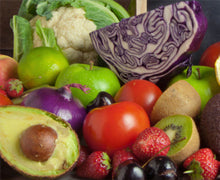
A direct link between what you eat and your chances of getting sick from COVID-19 has been found. Researchers from King’s College London and Harvard Medical School discovered a healthy diet lessens a person’s chances of contracting COVID-19 by as much as 10 percent and cuts the likelihood of serious illness by 40 percent.
The scientists who conducted the research say this is the first longitudinal study of diet and COVID-19 and the first to show healthy diets have the ability to lessen the chances and the severity of the disease.
The study results published in the journal Gut, detailed the data from more than 600,000 participants. Study members used the ZOE COVID Study app and completed surveys about their eating habits. During the period in which they were tracked, 19 percent of the participants contracted COVID-19.
Scientists looked at broader dietary patterns reflective of how people ate rather than specific foods or nutrients consumed. The information was used to create a diet quality score that graded the merit of each person’s diet.
Things such as plant-based foods like vegetables, fruits and whole grains earned higher scores while highly processed foods and refined carbohydrates earned lower scores. Other things that ranked high were good protein sources like oily fish.
The scores were tallied and the participants were grouped. Those with the highest quality diets were 10 percent less likely to develop COVID-19 than those who consumed the lowest quality diets and they were 40 percent less likely to become severely ill in the event they did contract COVID-19.
The results remained the same even after researchers accounted for other factors that could have impacted the outcome such as age, BMI, smoking, physical activity and other underlying health conditions. Researchers also looked at mask-wearing habits and population density.
"These findings chime with recent results from our landmark PREDICT study, showing that people who eat higher quality diets (with low levels of ultra-processed foods) have a healthier collection of microbes in their guts, which is linked to better health,†King’s College professor Tim Spector said. "You don't have to go vegan, but getting more diverse plants on your plate is a great way to boost the health of your gut microbiome, improve your immunity and overall health, and potentially reduce your risk from COVID-19."



